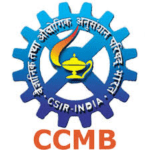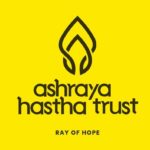The goal of the project is to augment the AOP knowledgebase in order to develop human-relevant predictive models. In this vein, the proposal should build on one of the existing AOPs in the AOP Wiki or be related to one of the 10 “hallmarks of cancer:” genetic instability, tumour-promoting inflammation, sustained proliferative signalling, insensitivity to antigrowth signals, resistance to cell death, angiogenesis, tissue invasion and metastasis, the tumour microenvironment and avoiding immune destruction. [1]



Each application should:
- Include the online introductory AOP course completion certificate
- Provide basic information regarding the extent of the pathway to be described
- Provide context for the relevance of the proposed pathway to understanding of the specific disease area and any potential toxicological relevance
- Summarize expected availability of evidence to support the AOP
- Factor in training and education in the OECD AOP framework and eventual entry into the OECD AOP Wiki (final result of the project is that the AOP is ready for entry into the OECD workplan)
HSI India and HSI, in collaboration with the Centre for Predictive Human Model Systems (CPHMS), will work with grant recipients to ensure a high calibre product. The effective integration of the receipient’s knowledge into the building of AOPs for addition to the OECD AOP Wiki knowledgebase will be supported. Collaboration to develop and disseminate a press release to the science media, as well as a short non-technical video, will be handled by HSI/India.
[1] Goodson, William H 3rd et al. “Assessing the carcinogenic potential of low-dose exposures to chemical mixtures in the environment: the challenge ahead.” Carcinogenesis vol. 36 Suppl 1,Suppl 1 (2015): S254-96. doi:10.1093/carcin/bgv039
Key Dates | Who can apply | How to apply | Funding conditions | Related documents
Key Dates
| Application process opens | 13 December 2019 |
| Deadline for online applications | 15 April 2020 (midnight IST) |
| Notification of successful candidates; legal paperwork; funding period commences |
1 June 2020 |
| Advanced AOP training | June-July 2020 |
| Draft AOP submitted to HSI | 1 February 2021 |
| Possible extension for draft submission to HSI First payment due upon acceptance by HSI |
1 August 2021 |
| Submission of AOP into AOP Wiki Final payment due upon acceptance for publication |
June-August 2021 |
Who can apply
- Health researchers holding a PhD (or equivalent) degree or PhD candidates able to demonstrate relevant experience in the disease area.
- Eligible individuals may currently be employed in a health research position in the academic, private or public sectors, or may have retired from such a position. Postdoctoral fellows are also eligible.
- Applications will be accepted from a single author or from groups of authors.
- The current call is restricted to applicants working in India.
How to apply
- The application form should be downloaded from the Related Documents section and submitted by email. Applicants must read the funding conditions below before completing their application.
- A brief resume of no more than two pages and PDFs of up to four recent publications in the relevant field of disease are required for each applicant.
- Final applications should be submitted by email to Dr Surat Parvatam at surat.parvatam@ccmb.res.in and Dr Brinda Poojary at bpoojary@hsi.org by 31st March 2020.
Funding conditions
It is expected that funding shall be used to enable applicants to dedicate their time to the study and development of a comprehensive AOP within a relatively short (~7-13 month) timeframe.
Successful applicants shall be paid in arrears under the following terms and conditions:
- 1,75,000 INR shall be payable upon completion of the AOP course and training to the satisfaction of HSI;
- 5,25,000 INR shall be payable upon acceptance of the AOP by OECD.
HSI will collaborate with each author to produce a suitable press release and will interface with the media service and the author’s institutional communications department as needed.
Funding recipients are requested to provide brief explanation of their AOP in language suitable for the public at large. HSI will use these materials to develop short (60-90 second) videos to illustrate to non-scientists how new technologies are helping to progress research for diseases that touch the lives of millions of people. Videos will be shared via HSI social media channels (e.g. Facebook and Twitter).
In addition to, and following the publication of, the AOP, applicants will be required to participate in at least one international conference/workshop, to be agreed upon with HSI and India/HSI. The aim of this follow-up event will be to facilitate open discussion of the limitations of animal models for human disease research to further disseminate this paradigm shift towards human-centred biomedical research. Travel and accommodation costs for this event will be covered by HSI India and are therefore not included in this funding.
Related documents
- Application form
- Required viewing: online introductory AOP course (two parts)
- Overview and historical perspective of the AOP framework
- AOP-Wiki training
- The courses and a self-exam can also be downloaded at biomed21.org/adverse-outcome-pathway-aop-online-course
- Recommended reading
- Lessons from Toxicology: Developing a 21st-Century Paradigm for Medical Research
- Towards a 21st-century roadmap for biomedical research and drug discovery: consensus report and recommendations
- Recommendations toward a human pathway-based approach to disease research
- NRC report: Toxicity Testing in the 21st Century
- OECD Users’ Handbook supplement to the Guidance Document for developing and assessing Adverse Outcome Pathways
- Adverse outcome pathways: a conceptual framework to support ecotoxicology research and risk assessment
